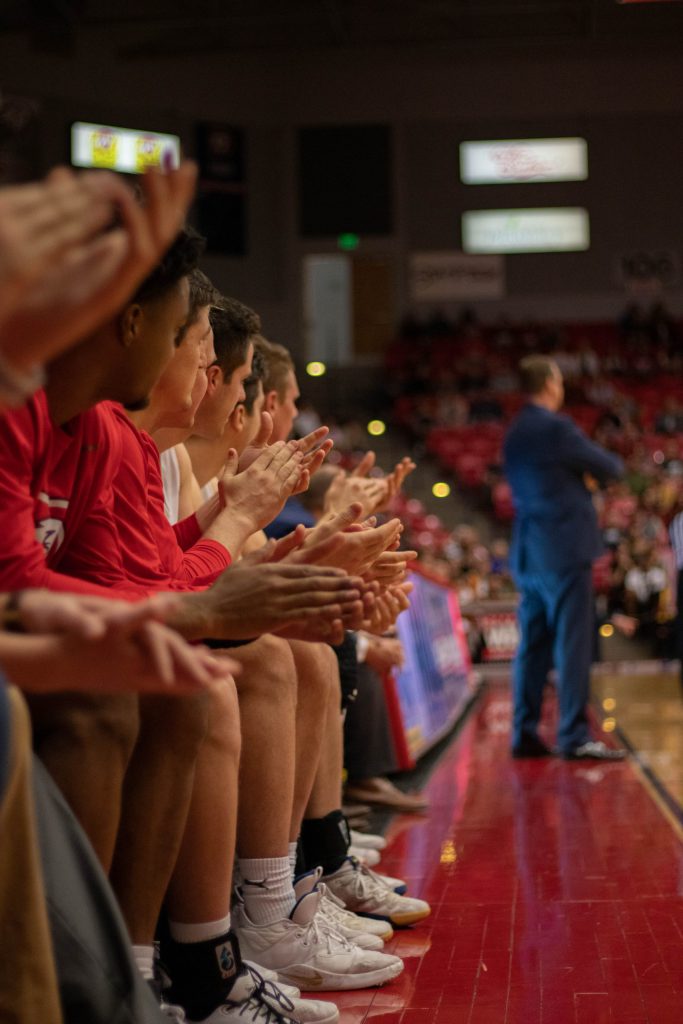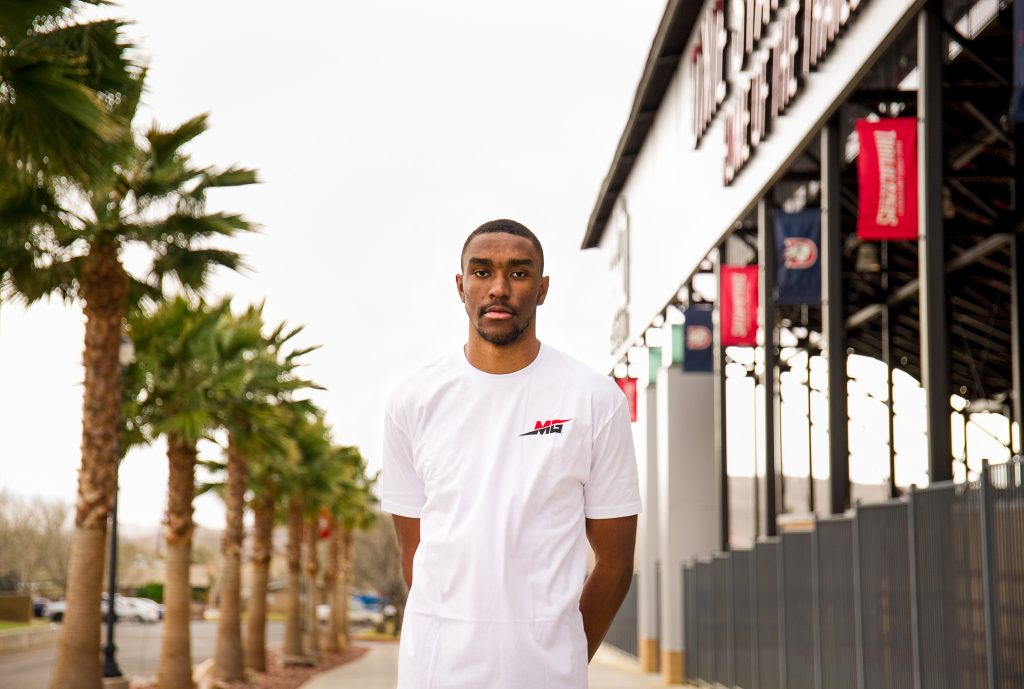Athletes’ ability to do what they love can diminish after the snap of a ball, an inbound of a pass, or the crack of a bat.
Injuries for athletes are inevitable. After an injury, student athletes must cope with their injuries until they are fully recovered and able to compete again.
Isaiah Jones, a senior business administration major from Provo, and Gage Manzione, a freshman exercise science major from Stansbury Park, have both worked their whole lives to be able to compete in collegiate football only to suffer an injury that has taken away the ability to do so.
“For any athlete, if they play a sport, especially at the collegiate level or for a lot of their life, that sport means a lot to them,” Jones said. “So it does affect their confidence in both outside of [the sport] and [for me] football specifically.”
Jones was injured in the fall during football season. His injury required surgery, causing him to miss a majority of the season. With Jones being a senior, although still having one year of eligibility, returning to the football field for Dixie State University was not in his interests moving forward.
“Either way I was questioning [whether or not] to return,” Jones said. “The injury I had was pretty severe, and it is really hard to come back from and play at top level because it stays sore for even a couple years after surgery.”
Jones is now focusing on graduating from DSU and getting accepted to graduate school.
On the other hand, Manzione said he is eager to get back onto the field. He was injured in the fall like Jones and will be entering the 2018 season as a red-shirt freshman.
“When you do get hurt there is that worry that you won’t be able to come back and play,” Manzione said. “With the help of the athletic trainers, the coaches and even your teammates you are able to gain that reassurance again that you will be able to come back.”
Suffering a major injury can leave an athlete with a choice: to go through all of the painstaking rehab to try and get back to how he or she performed at their best, with the possibility of never making it there, or to give up and move on to other goals in their life.
Athletic Trainer Bruno Silva said he talks with student athletes when they are considering ending their athletic careers, as well as constantly educating athletes about their injuries and teaching how to avoid them.
“My job is not only care about them physically, but mentally as well,” Silva said. “My primary goal is to get them back to where they were.”
If a player is considering ending his or her athletic career at the collegiate level, Silva asks them to take a week to think about it and to keep in contact throughout that time. Silva also discusses with the players their options moving forward.
“I talk to them about the possibility of getting back on the horse,” Silva said. “At least ride one more time, and then you can hang ‘em up with confidence saying ‘the injury had nothing to do with it; I’m just done.’”



